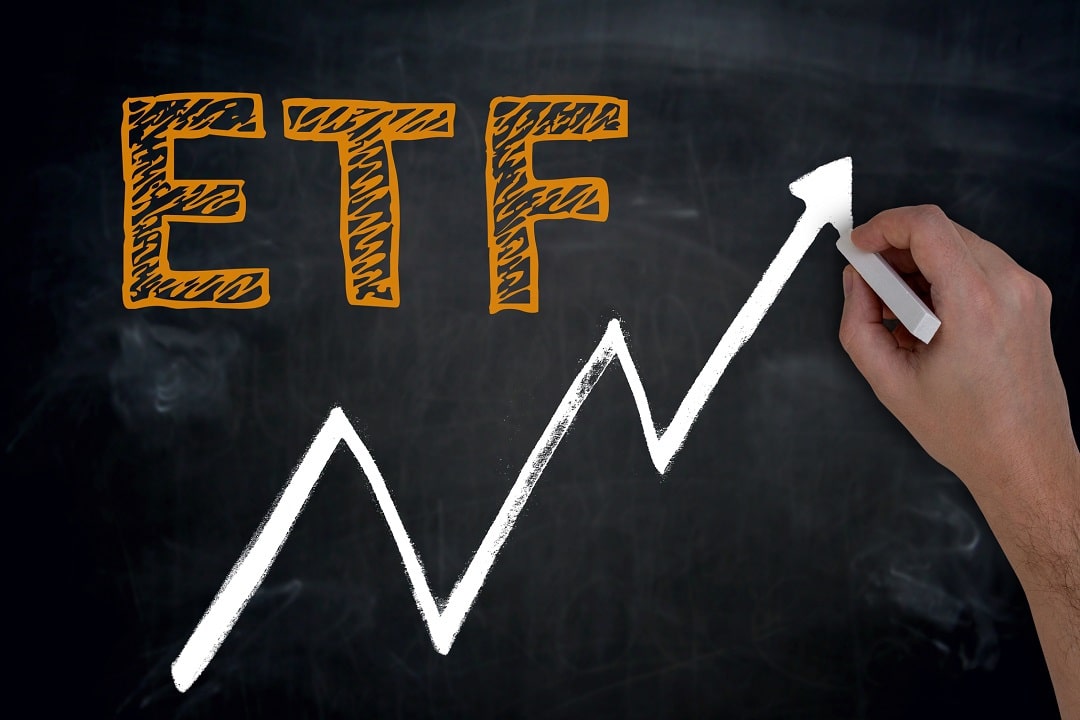Bitcoin ETFs have been talked about continuously over the past several months. There have been numerous ETFs that have been submitted to the SEC in America: ProShares, Winklevoss, VanEck-SolidX, and many others. However, there is considerable confusion among the less experienced investors, who find themselves having to deal with different types of investment: ETFs, ETNs, Futures, etc…
ETF vs ETN
ETF stands for Exchange-Traded Fund. These are listed funds that replicate the performance of an index, for example, by grouping several stocks.
In the case of bitcoin, there will be a fund that holds bitcoin and sells stocks, which can be purchased by potential customers through their account. So the idea is to accumulate a significant amount of bitcoin and turn them into tools and financial products that can be traded on the markets in a similar way to stocks.
ETN stands for Exchange-Traded Note. The mechanism is similar to the ETF, but ETNs are riskier because they are debt securities guaranteed by the bank. If the issuer were to go bankrupt, the ETN subscribers could lose their investment. Although in many cases issuers collateralise ETNs.
Several ETF proposals
As Jake Chervinsky, a US government criminal investigation attorney, explains, the registration of an ETF follows a standard three-step procedure:
- The ETF is proposed by the applicant;
- The SEC publishes the notification of the deposit in the Federal Register;
- The SEC has a variable period of time to accept or reject the ETF proposal. Usually 45 days in total, but it can take up to 240 days.
Generally, the confusion within the community is due to the different ETF proposals, from those rejected to those still under consideration. Rejecting one of these products does not generally mean rejecting all the proposals as the SEC analyses each case separately.
The approval
Robert J. Jackson, one of the commissioners of the SEC (Securities and Exchange Commission), spoke about cryptocurrencies at the Future of Fintech conference explaining the reasons that can push the American entity to approve bitcoin (BTC) ETFs.
The SEC has already repeatedly delayed the decision regarding these ETFs and has also hesitated to regulate a sector which, according to Jackson, still lacks sufficient liquidity and transparency.
“Basically, we have to make choices to ensure a good product for Americans, in which they can decide to invest. As far as cryptocurrency trading is concerned, there are many aspects to consider that are fundamental today.
Hester Peirce does not think the same way, although Jackson has repeatedly pointed out that his stalling is due to the fact that there is no safeguard against the manipulation of this market, precisely because of the lack of liquidity that is characteristic of it.
The inadequate number of market makers is another fundamental problem. It is not yet clear whether prices can be guaranteed when buying or selling cryptocurrencies, all this is clearly related to the low volumes.
“When the markets reach a situation of stability, transparency and liquidity, I firmly believe that the SEC will take a positive stance by approving several cryptocurrency projects”.
Not your keys, not your bitcoin
The prospect of a bitcoin ETF or ETN shakes the crypto world a lot and this is mainly because they are much more flexible products than bitcoin futures. For example, an ETF is tradable on a daily basis. This is the reason why many people think that in the case of authorisation by the SEC the price of bitcoin could rise a lot.
However, not everyone agrees with the approval of these financial products. There are authoritative critical voices such as those of Nick Szabo and Andreas Antonopoulos.
The famous Bitcoin evangelist Andreas Antonopoulos declares himself completely against ETFs and has clearly talked about it in his regular Bitcoin Q&A videos.
He explains that large market makers can significantly influence commodity prices, not only in the market where the ETF is listed but worldwide, as is the case with the commodities market.
Not to mention the fact that the holders of the private keys are not the clients but the fund managers. Suppose there’s a hard fork with a chain split and airdrop for bitcoin owners. The beneficiaries will be the holders of the private keys, i.e. the fund managers who can decide what to do.
Antonopoulos also cites the example of a hypothetical Bitcoin upgrade that would lead to total anonymity. ETF operators could use all their decision-making power to oppose bitcoin anonymity.
The eager anticipation of the SEC’s approval is due to the fact that, as we know, this would be very positive news and would almost certainly lead to an increase in the value of BTC. Few, however, reflect on the long-term risks that would result from the approval of ETFs on the decision-making autonomy of the Bitcoin network.



